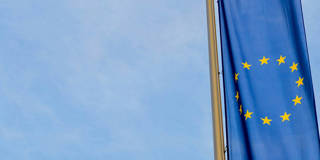The key question in assessing Europe’s power resources is whether the EU will retain enough cohesion to speak with a single voice on a wide range of international issues, or remain a limited grouping defined by its members’ different national identities, political cultures, and foreign policies. The answer varies by issue.
CAMBRIDGE – In 1973, US Secretary of State Henry Kissinger, following a period of American preoccupation with Vietnam and China, declared a “year of Europe.” More recently, after President Barack Obama announced a US strategic “pivot,” or rebalancing, toward Asia, many Europeans worried about American neglect. Now, with an ongoing refugee crisis, Russia’s occupation of eastern Ukraine and illegal annexation of Crimea, and the threat of British withdrawal from the European Union, 2016 may become, by necessity, another “year of Europe” for American diplomacy.

CAMBRIDGE – In 1973, US Secretary of State Henry Kissinger, following a period of American preoccupation with Vietnam and China, declared a “year of Europe.” More recently, after President Barack Obama announced a US strategic “pivot,” or rebalancing, toward Asia, many Europeans worried about American neglect. Now, with an ongoing refugee crisis, Russia’s occupation of eastern Ukraine and illegal annexation of Crimea, and the threat of British withdrawal from the European Union, 2016 may become, by necessity, another “year of Europe” for American diplomacy.